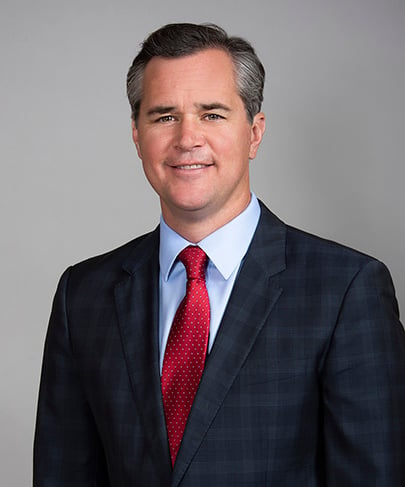Ohio House Bill 247: Expanding the Role of Regulated Utilities
Download PDF- O'Donnell, Terrence Pirik, Christine M.T. Vorys, William V.
- Industry Alerts
Click “Subscribe Now” to get attorney insights on the latest developments in a range of services and industries.
On May 15, 2019, Representative Dick Stein (R) introduced House Bill 247, which proposes significant changes to Ohio’s energy landscape and would expand the ability of Ohio’s regulated distribution utilities to own and operate energy infrastructure and to support local economic development.
Introduced during the high profile and at times contentious debate on newly-enacted House Bill 6, HB 247 did not garner the same level of attention, but if enacted, its impact could be far-reaching.
HB 247 remains in the House Public Utilities Committee, where it could receive hearings as early as the Fall of 2019. Below we summarize its major provisions.
1. Expanding Utility Role: The bill defines a number of categories of energy-related products, services, and infrastructure as either “smart grid” or “customer-focused energy services or products” that distribution utilities may undertake and receive cost recovery for through an Electric Security Plan (ESP) under ORC 4928.143. These include batteries, energy management technologies and services, energy efficiency, electric vehicle charging infrastructure, community solar, and microgrids. Other than energy efficiency programs (previously implemented by distribution utilities pursuant to the state energy efficiency standard, ORC 4928.66), these categories of investments have generally been viewed as part of the “deregulated,” competitive market in Ohio – not within the purview of the monopoly distribution companies – with only limited exceptions.
- Electric Security Plan expansion (lines 606-625): Ohio distribution utilities have often sought cost recovery for non-traditional types of investments through an ESP, but at times have faced pushback from the PUCO or Ohio Supreme Court setting limits on what can be included in such a plan. HB 247 expands the potential scope of an ESP to expressly authorize distribution utility cost recovery for “smart grid” deployment or “customer-focused energy services or products,” including a “just and reasonable rate of return” (i.e., profit) on smart grid investments. The bill amends ORC 4928.143 (the ESP provision) to:
- Allow inclusion of additional types of provisions regarding the utility’s distribution service (lines 606-618):
- Single issue ratemaking
- Any type of incentive ratemaking
- Distribution infrastructure and modernization incentives
- Deployment of “smart grid” technology
- Provision of “customer-focused energy services or products”
- Allow cost recovery of “a just and reasonable rate of return” on “smart grid technology deployment” (lines 619-625)
- Allow inclusion of additional types of provisions regarding the utility’s distribution service (lines 606-618):
- Definition of “smart grid” (lines 381-407): The bill amends the existing definition of “smart grid” in ORC 4928.01 to include a broad range of electricity-related infrastructure and programs that the distribution utility may invest in and earn a profit on through an ESP. The bill adds the following specified items to “smart grid”:
- “Deployment, adaptation, replacement, or subsequent reinforcement of any technology that facilitates the storage, control, or delivery of electric energy including, but not limited to:”
- Advanced metering
- System/distribution automation
- Battery technology
- Demand response and other energy management technologies
- Electric vehicle charging stations and associated equipment or infrastructure
- Energy monitoring and control devices
- Lighting controls and other smart controls
- Microgrids
- Physical and cybersecurity technologies
- Volt-VAR optimization and similar technologies
- Any other technologies classified as “smart grid” by the PUCO
- “Capital investment in equipment deployed in conjunction with an electric distribution utility’s distribution infrastructure that facilitates intelligent city designs such as traffic sensors, infrastructure monitoring equipment, data management systems, and similar technology”
- “Deployment, adaptation, replacement, or subsequent reinforcement of any technology that facilitates the storage, control, or delivery of electric energy including, but not limited to:”
- Definition of “customer-focused energy services or products” (lines 408-429): The bill creates an expansive new statutory definition for “customer-focused energy services or products” that a distribution utility may also undertake through an ESP:
- “Any services or products provided by an electric distribution utility to or for the benefit of its customers including, but not limited to”:
- Services related to energy reliability and resiliency
- Curtailment and individual customer and aggregated demand response activities
- Energy efficiency or reduction
- Energy storage or battery functions
- Energy management
- Energy monitoring and control technologies
- Lighting controls and other smart controls
- Warranty and repair services
- Electric vehicle charging stations
- “Any services or products provided by an electric distribution utility to or for the benefit of its customers including, but not limited to”:
- Microgrids
- Community solar energy facilities
- Energy-related physical security and cybersecurity
- “Installation, financing, leasing, or management of technology, data, and devices related to such services or products and the installation and management of smart grid technology to facilitate such services”
2. Removing constraints on distribution utilities participating in the competitive marketplace: In parallel with the above expansion of areas where distribution utilities can obtain ratepayer cost recovery for investments, the bill would remove policy and regulatory restrictions on distribution utilities obtaining cost recovery from ratepayers for “competitive” products and services.
- Making state policy more flexible regarding distribution utility role in the competitive marketplace: ORC 4928.02 codifies certain state policy provisions that the PUCO is to take into account in reviewing an ESP, among other decisions. HB 247 would amend this provision to grant more flexibility for distribution utilities to offer products and services in competition with the private sector, while obtaining cost recovery from ratepayers. It would also add a state policy expressly favoring provision of energy efficiency and alternative energy resources to residential customers. Specifically, the bill would amend ORC 4928.02 to:
- Endorse flexible regulatory treatment for “customer-focused energy services or products” (lines 474-477)
- Eliminate policy of avoiding anticompetitive subsidies flowing from a noncompetitive retail electric service to a “product or service other than retail electric service” (lines 478-484)1
- Add policy in favor of encouraging education about and use by residential customers “regarding . . . energy efficiency programs and alternative energy resources” (lines 499-502)
- Loosening “corporate separation” requirements: As part of Ohio’s restructuring of the electricity sector, the state required monopoly distribution utilities to develop “corporate separation” plans designed to ensure they did not leverage their monopoly power to give their competitive operations an advantage in the marketplace. HB 247 would loosen those requirements by amending ORC 4928.17 (the corporate separation provision) to:
- Eliminate the prohibition on electric utilities engaging directly or through an affiliate “in the businesses of supplying a noncompetitive retail electric service and supplying a product or service other than retail electric service” – in other words, opening the door to distribution utilities providing products or services related to actually supplying electricity while also operating as the monopoly “wires” company (lines 769-811)
- Explicitly authorize an electric distribution utility to offer “customer-focused energy services or products, including any related deployment of smart grid technology on the customer’s premises” under the following conditions (lines 812-832):
- The PUCO approves the offering under ORC 4905.31 (reasonable arrangements), 4909.18 (rate increase proceeding), 4928.143 (ESP), or 4928.66 (energy efficiency); or
- The utility’s corporate separation plan provides that:
- Such services/products are optional for customers
- The utility maintains separate accounting for such services/products
- The utility does not include incremental costs directly related to the services/products in base distribution rates and instead recovers incremental costs through charges to participating customers
- Exempt any electric distribution utility’s “action, plan, product or service offering, or initiative” from corporate separation requirements if it is approved by PUCO under ORC 4905.31 (reasonable arrangements), 4928.142 (standard service offer), 4928.64 (RPS), or 4928.66 (energy efficiency) (lines 880-885)
3. Authorizing ratepayer funding for distribution utility construction of new infrastructure or facilities for large businesses: HB 247 would add new statutory authorization for a distribution utility to: (1) undertake ratepayer-financed infrastructure development to support local or state economic development projects; or (2) to build ratepayer-financed facilities for a new or expanding large business customer, both through a new provision, ORC 4928.25 (lines 886-920) that would:
- Authorize an electric distribution utility to undertake “infrastructure development necessary to support or enable a state or local economic development project,” with “infrastructure development” defined as work related to substation construction, extensions of transmission or distribution facilities, or performance of load studies.
- The utility “shall timely recover” all costs through a nonbypassable distribution rider “regardless of whether the infrastructure development is used and useful at the time constructed”
- Require the electric distribution facility to submit notice to PUCO prior to beginning infrastructure development with:
- Description of economic development project
- Summary of infrastructure development costs
- Statement from state/local entity involved that “the infrastructure development is necessary to support or enable the economic development project”
- Authorize an electric distribution utility to “plan, develop, and construct facilities for a mercantile customer that is newly locating or expanding operations in the state” that has a forecasted monthly peak demand of at least 5 MW.
- The utility “shall timely recover” all costs through a nonbypassable distribution rider following completion of construction
- The mercantile customer is to own and maintain the facilities
1 ORC 4928.01(27) defines “retail electric service” as: “any service involved in supplying or arranging for the supply of electricity to ultimate consumers in this state, from the point of generation to the point of consumption. For the purposes of this chapter, retail electric service includes one or more of the following ‘service components’: generation service, aggregation service, power marketing service, power brokerage service, transmission service, distribution service, ancillary service, metering service, and billing and collection service.” Roughly, “retail electric service” is the business of getting actual electricity to a customer, but would not include related services like demand response.
This client alert is published by Dickinson Wright PLLC to inform our clients and friends of important developments in the field of Energy & Sustainability law. The content is informational only and does not constitute legal or professional advice. We encourage you to consult a Dickinson Wright attorney if you have specific questions or concerns relating to any of the topics covered in here.
Related Practices
Contacts

Recent Insights
- Industry Alerts Ohio Enacts Sweeping Energy Legislation: HB 6 Bails Out Nuclear, Coal; Rolls Back Renewables and Energy Efficiency
- Industry Alerts Contemplating a Repeal of Ohio House Bill 6: The Practical Effects of Hitting Reset on Ohio Energy Policy
- Industry Alerts Will Washington’s Decoupling Agenda Delay the EV Transition | 华盛顿的战略脱钩计划会延缓电气化的转型吗?
- April 01, 2025 Podcasts DW FastTrack Episode 11: Understanding Sanctions - Current Trends Affecting OFAC
- November 22, 2024 Media Mentions Lee Petro has been featured in prominent media outlets, including Law360, Bloomberg, Communications Daily, and CNN where he shared insights on the potential regulatory landscape under the new presidential administration.
- May 9, 2024 In the News Glenn Richards Joins Dickinson Wright Washington, D.C. Office as a Member
- January 8, 2024 In the News Sloane Carlough Joins Dickinson Wright Lexington Office
- January 12, 2023 Industry Alerts Ohio Supreme Court Reigns in "Administrative State"
- July 08, 2022 Industry Alerts Ohio Legislature Adopts New Protections for Solar Access for Homeowners


